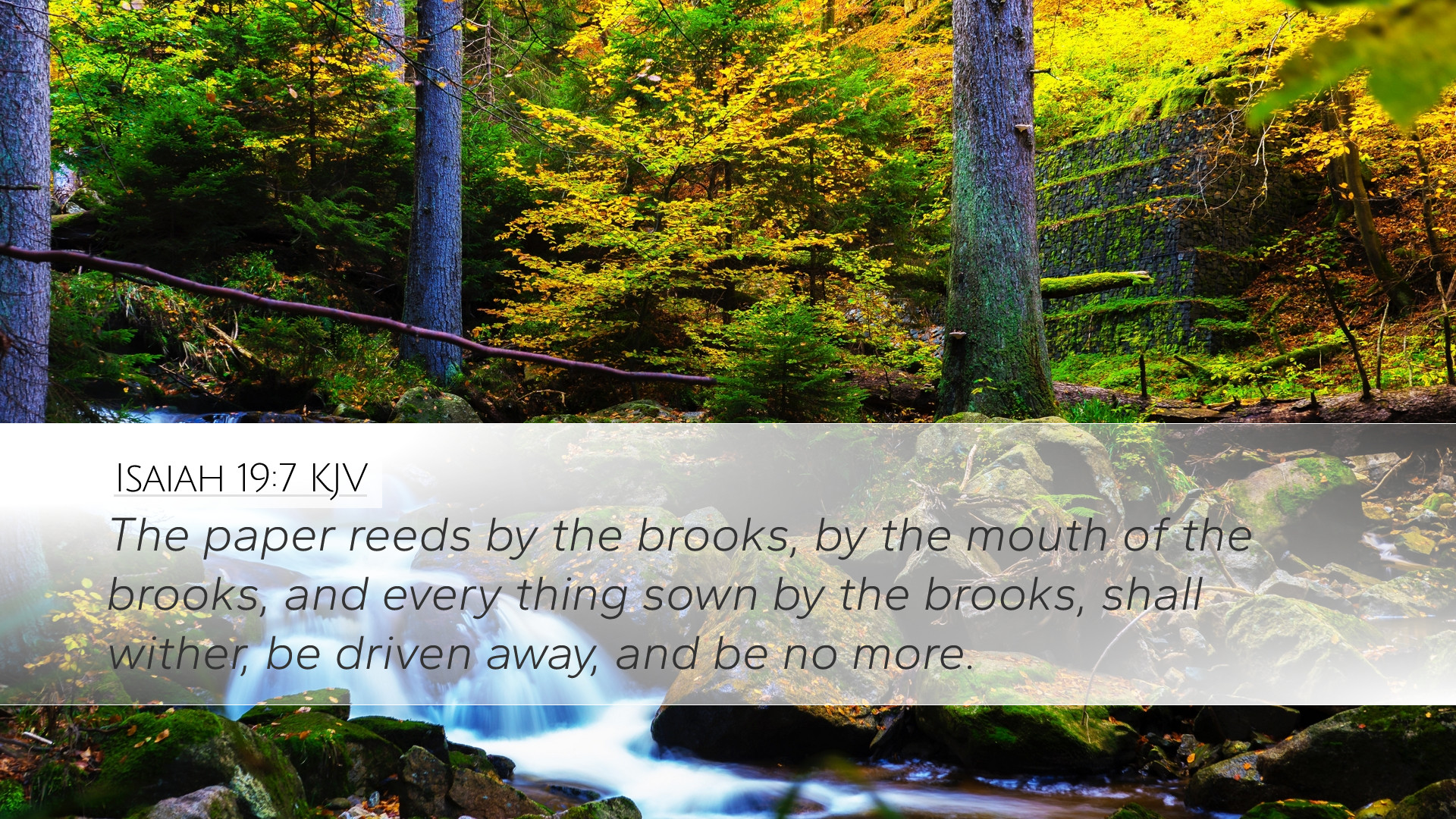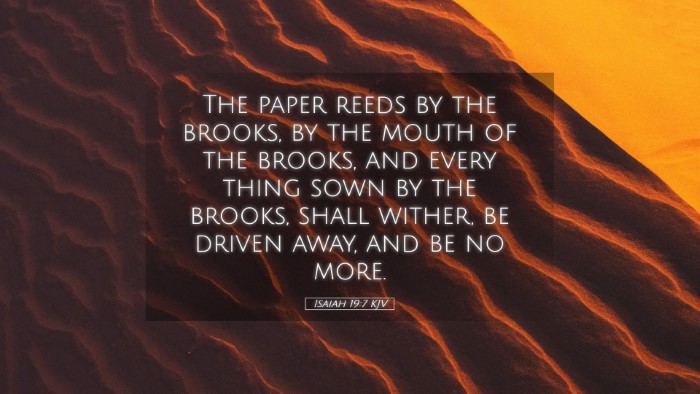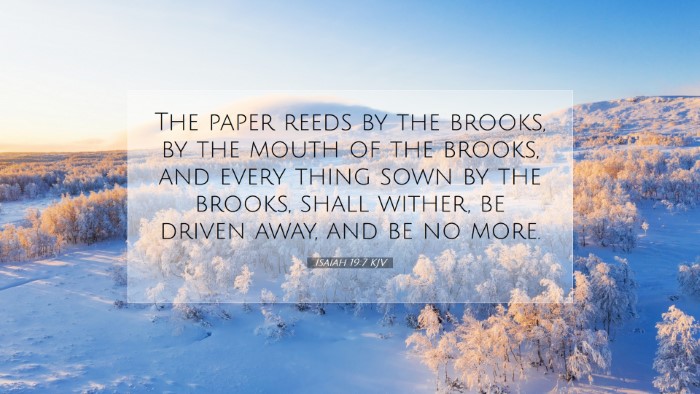Commentary on Isaiah 19:7
Isaiah 19:7: "The paper reeds by the brooks, and every thing sown by the brooks, shall wither, be driven away, and be no more."
Context and Overview
The prophecy of Isaiah against Egypt serves as a significant portion of the larger narrative found in the Book of Isaiah. This chapter, in particular, explores the impending judgment upon Egypt, emphasizing the consequences of their disobedience and idolatry. By studying Isaiah 19:7, one can appreciate the depth of the metaphor of withering and desolation as prophesied against Egypt.
Commentary Insights
1. Matthew Henry's Exposition
Matthew Henry refers to the paper reeds along the brooks, indicating their frailty and inability to withstand drought. He points out that these reeds symbolize the emptiness of Egypt without God's favor. As they wither away, it reflects not merely a physical desolation but also a spiritual one, illustrating the consequences of turning away from the True God.
2. Albert Barnes' Observation
Albert Barnes elaborates on the imagery of the reeds, suggesting that they are indicative of Egypt’s reliance on its own resources rather than on God. The desolation epitomized by the withering of the reeds reflects God's judgment; the source of Egypt’s sustenance—the waters of the Nile—shall be hindered, leading to great turmoil and loss. Barnes stresses that this serves as a warning to those who rest in worldly powers and pleasures rather than seeking divine support.
3. Adam Clarke's Analysis
Adam Clarke comments on the significance of the term "sown" within this verse. He indicates that the phrase depicts the agricultural practices common to ancient Egypt, which relied heavily on the Nile river for irrigation. His analysis highlights that when God's judgment arises, even the most fertile land fails to produce. Clarke notes that this judgment serves to remind nations of their dependence on the Almighty for sustenance and protection, emphasizing the futility of idolatry.
Thematic Insights
- Judgment against Idolatry: The withering state of the reeds reflects God's judgment against the idolatrous practices prevalent in Egypt. It serves as a reminder of the inevitable consequences of forsaking the Lord.
- The Fragility of Human Efforts: The imagery depicts a broader theological truth: the precarious nature of relying on human strength and resources. Without divine providence, even the most stable societies can fall into ruin.
- Dependency on God: The withering reeds symbolize the need for nations and individuals to recognize their ultimate dependency on God for sustenance and life, echoing the biblical theme found throughout Scripture.
Application for Today's Believers
Today, this verse serves as a profound reminder for pastors, theologians, and all believers to reflect on the nature of reliance and dependency. Just as Egypt faced withering in the face of judgment, modern societies that turn away from God face similar spiritual desolation. The need for a holistic dependence on spiritual nourishment through communion with God is paramount.
Moreover, the dire circumstances depicted in Isaiah compel the faithful to advocate for societal repentance and a return to foundational truths that acknowledge God's sovereignty and authority over all creation.
Concluding Thoughts
In sum, Isaiah 19:7 stands as a powerful testament against the backdrop of judgment and mercy. It echoes throughout history as a clarion call to nations and individuals alike to reevaluate their priorities, reliance, and faith. Rich insights from Matthew Henry, Albert Barnes, and Adam Clarke collectively illuminate the importance of this verse within the larger narrative of Scripture, presenting invaluable lessons for Christians as they navigate a world facing many of the same temptations and trials as ancient Egypt.


